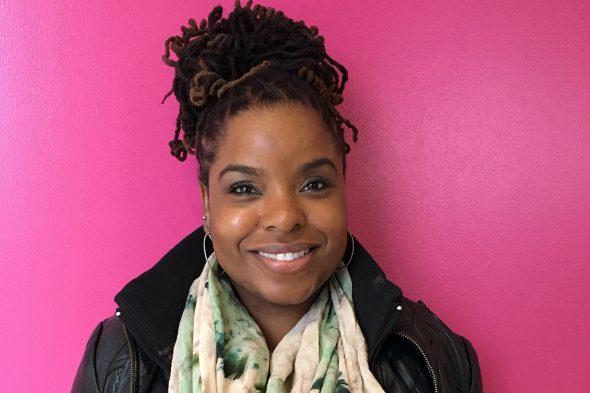Journalist examines portrayal of marginalized groups in mainstream media
Chicago Tribune reporter Lolly Bowean examined how marginalized groups are written about in the media during the Mellon Lecture for the Engaged Humanities Oct. 28 at the Institute for the Humanities.
The most captivating topic for Bowean as a journalist is black life in Chicago. Throughout her career at the Chicago Tribune, she has made it her mission to show accurate representation of black people in Chicago.
Bowean began her lecture by telling the story of former slave Kossola, also known as Cudjo Lewis, and how the former slave was interviewed by author and filmmaker Zora Neale Hurston. Hurston wrote a book about Kossola titled, “Barracoon,” which gives an honest perspective on slavery.
Similar to Hurston, Bowean makes a point to hear from African Americans in Chicago to have an authentic perspective on Chicago’s communities.
“Stories shape how we think about each other,” Bowean said. “Stories shape how we see the world…and so, often, I find myself thinking about who has been left out of the story and why?”
Throughout Bowean’s lecture, she called for the audience to understand the historical evidence that shows that African Americans had to make their own spaces in order to be heard.
Bowean told the story of the first African American publication, Freedom’s Journal, created by John Russwurm and Samuel Cornish. Russwurm and Cornish aimed to portray African Americans in a way that was accurate to their reality living in America almost four decades before the Emancipation Proclamation was signed. It was the beginning of reclaiming the narrative of the misrepresented, Bowean said.
She posed the question: “What does it mean for us when we don’t know those stories?”
Bowean noted that both the Chicago Defender and Freedom’s Journal were consistent not only with supporting African Americans, but also acknowledging the importance of black voices. The Chicago Courier also recognized the importance of telling the stories of a marginalized group of people, she said.
It’s still a work in progress for many mainstream media outlets to accurately represent marginalized groups when they don’t hire people who reflect the voices of these groups, she said.
In Bowean’s final remarks, she made a call for action.
“You, as readers, as educators, must demand the stories from these communities, these perspectives and support the voices that deliver them,” she said.
During the Q&A portion of the lecture, Bowean talked about her life as a journalist. She reads several newspapers daily and she aims to immerse her readers into the black communities she’s writing about. She also was asked her opinion on the current assault on journalism and “fake news.” Bowean said she does her research thoroughly.
“We scrub the sources to make sure they are legitimate and who they say they are,” she said.
Categories

